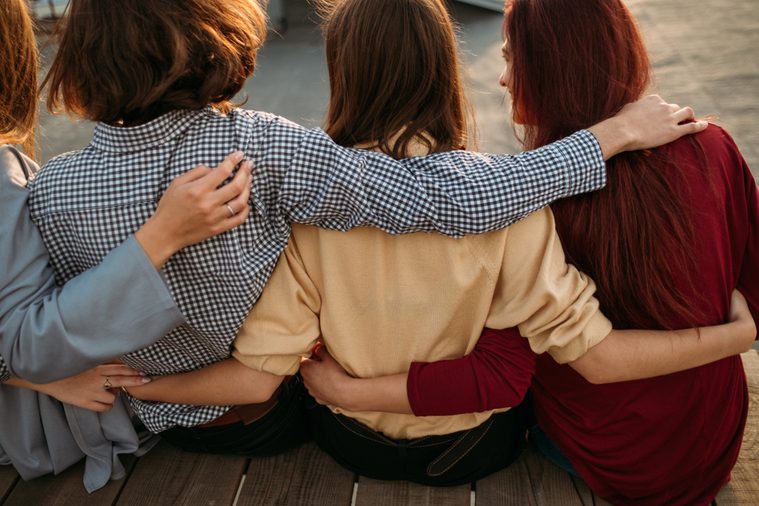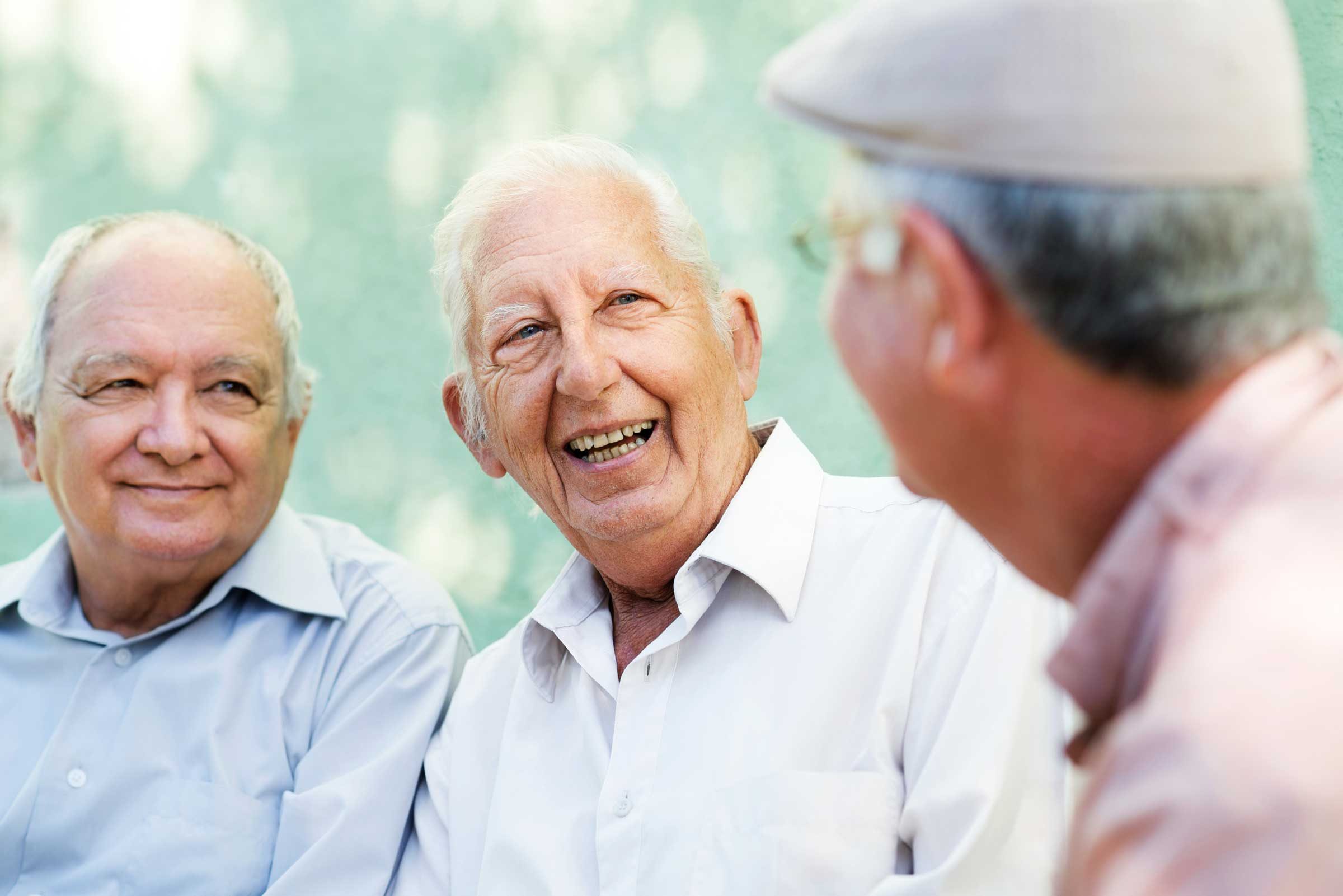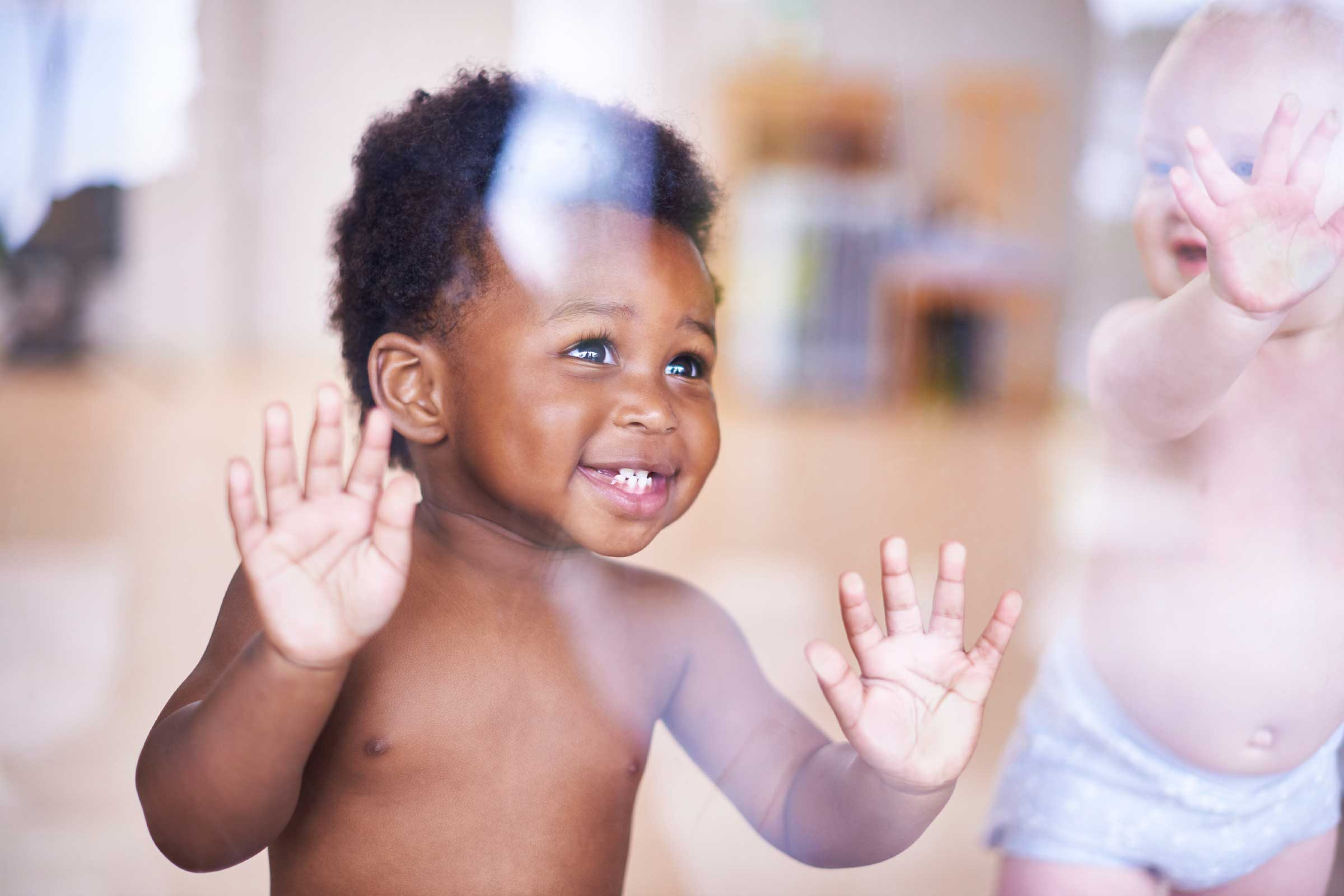
Friends literally make you healthier
In a study completed by Claire Yang, a sociologist at the University of North Carolina, Chapel Hill, she found that people with close social ties had lower blood pressure, body mass index, waist circumference and levels of the inflammation marker C-reactive protein than those that were socially isolated. Share a laugh with a pal over these funny quotes about friendship.

They help you cope with rejection and trauma
When life doesn’t go as planned, our friends are there to help us pick up the pieces. In 2011, a study was done on fourth graders and it found that the presence of friends helped kids cope with rejection from other peers. While your friends probably can’t make all of your stress go away, they certainly reduce it (and support you the rest of the way). Find out more about how friends can relieve stress and help you cope.

Friends make hills seem less steep
And not just in a metaphorical sense. In a fascinating study published in the Journal of Experimental Social Psychology, participants estimated a hill to be less steep when they were accompanied by a friend than when they were alone. What’s more, the longer the friends knew each other, the less steep the incline seemed.

Friends make you look more attractive
A small study from the University of California, San Diego, suggests that the cheerleader effect—the idea that you look more attractive in a group than you do alone—might be true. When researchers asked 139 college students to rank the general attractiveness of people in a group photo, then to rank one person from the group when shown his/her photo individually, the individual photos were ranked 5.5 percent less attractive. Speaking of which, check out the reason why you and your friends start to look like each other.

Buddies help you battle cancer
In a 2005 study published in the journal Cancer, women with ovarian cancer who had adequate social support (read: a lot of friends) had an average of 70 percent less interleukin-6, a blood protein that can reduce the effectiveness of chemotherapy, than patients with fewer friends.

Loneliness is bad for your health
When Julianne Holt-Lunstad, associate professor of psychology at Brigham Young University analyzed data from nearly 150 studies of social relationships and mortality for a paper published in PLOS Medicine a few years ago, she uncovered a startling statistic: A weak social circle can take a toll on your longevity—comparable to smoking a pack of cigarettes a day. “We need to start taking our social relationships more seriously,” Holt-Lunstad said in a statement. “The effect of this is comparable to obesity, something that public health takes very seriously.” In a tough spot with some of your friends? Find out 12 expert solutions for your everyday friendship problems.

Close friends share DNA
You might wish your BFF could be your sister; now a recent study suggests that close friends share about one percent of their DNA, making them as close genetically as fourth cousins. Researchers from Yale University and the University of California San Diego analyzed data from nearly 2,000 people and found that the “chemistry” that draws friends together may stem from shared DNA. This could help explain the evolution of friendship.

Babies understand friendship
Friendship might be so essential to our well-being, even young babies can understand social relationships—before they can walk or talk, according to a 2014 study from the University of Chicago. The research team showed 64 nine-month-olds two videos. In one, two people ate a food and each reacted positively or negatively. In the other, the same two people greeted each other warmly or by turning their backs on one another. When the reactions didn’t match—both people had the same reaction to the food, but greeted each other coldly—the babies stared at the screen longer, a sign that things didn’t seem quite right. “Infants are able to watch strangers interact and then make inferences about whether those two people are likely to be friends,” Amanda Woodward, the study’s co-author, told The Huffington Post. Find out these friendship faux pas that will sabotage your goal of making new friends.

They can lower your blood pressure
Being a chronically high-strung or stressed person is never good for your health, but your friends can help with that. One study found that there is a direct correlation between feelings of loneliness and higher blood pressure. So if you’re surrounding yourself with people who love and support you, you run less of a risk of having higher blood pressure.

They help you stick to your goals
If you’re trying to kick a habit or create a healthier one, you’ll find it’s easier when you have a buddy. Having friends that double as accountability partners makes you 20 percent more likely to exert restraint (read: hold off on that second glass of wine or say “no” to the cake) than if you were doing it alone, according to a study done at the University of Georgia. And when you have more self-control, you’ll positively influence your pals. Not to mention, they can also make you feel better –– here’s the scientific reason why your friends can affect your mood.